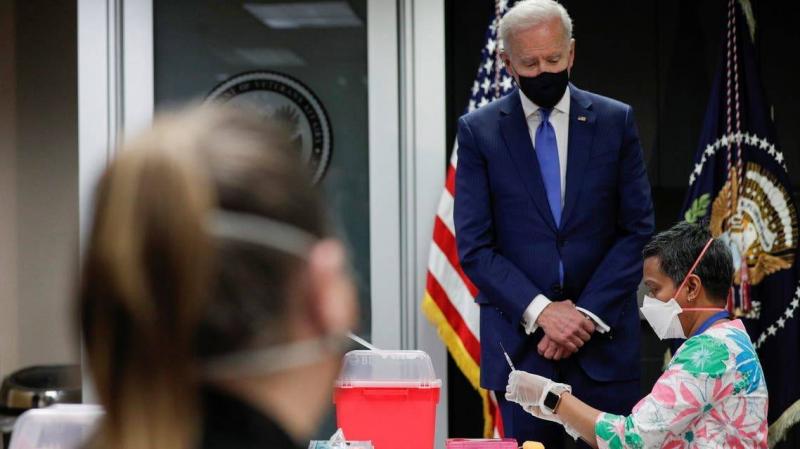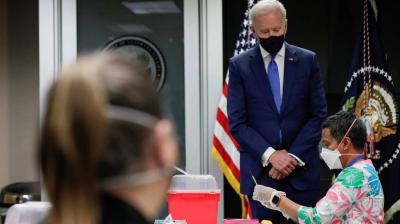Under the headline "A Gift from Biden in the American Way... Doubtful COVID-19 Vaccine Doses!", the Al-Arabiya website published news indicating that 60 million doses of the AstraZeneca vaccine were manufactured in a factory that was closed for health reasons. It pointed out that after the U.S. administration faced pressure to increase efforts to combat the COVID-19 pandemic outside the United States, President Joe Biden plans to provide up to 60 million doses of the AstraZeneca vaccine, according to officials on Monday. This announcement came after Biden spoke with Indian Prime Minister Narendra Modi, and both committed to "work closely together" in combating COVID-19.
However, global health groups stated that the commitment was not significant enough and there was another issue, as the U.S. AstraZeneca doses were manufactured in a factory in Baltimore owned by Emergent BioSolutions, which halted production amid contamination concerns. As part of the ongoing safety review of the factory, the U.S. Food and Drug Administration will need to certify that the doses meet U.S. safety and quality standards, according to the New York Times, as cited by Al-Arabiya.
Regarding the shipment of vaccines abroad that were manufactured for the U.S. and funded by American taxpayers, Biden seemed firm in stating that it "will help other countries... but only after every American has a chance to be vaccinated against COVID-19." As the U.S. vaccination campaign reaches a turning point, Biden appears more willing to consider sending surplus doses abroad, specifically the AstraZeneca vaccine, which is not authorized for use in the U.S.
Given the scope of the crisis, congressional liberals and global health advocacy organizations argue that the president has an ethical obligation to do more, as the Indian Prime Minister pressed the U.S. president to ease patent and intellectual property controls on pharmaceuticals, an issue that liberals have also championed, accusing Biden of yielding to the profits of pharmaceutical companies.
For her part, the executive director of Health GAP, Asia Russell, stated that the U.S. president promised her during a campaign meeting "that intellectual property rights would not block access to a successful COVID-19 vaccine." In a conference call with reporters on Monday, senior officials from the Biden administration stated that, in addition to the funds pledged to the international vaccine initiative, known as Covax, totaling $4 billion, the U.S. administration intends to spend $11.5 billion, allocated by Congress as part of the $1.9 trillion stimulus package, to assist other countries in combating the pandemic and managing vaccines.
However, officials did not address questions regarding patent waivers on the vaccines developed by Pfizer-BioNTech and Moderna, which used advanced biotechnology methods. The announcement on Monday about the AstraZeneca vaccine came just one day after the administration unveiled a series of steps to assist India, including easing the pathway for exporting raw materials for vaccine production, providing that country with treatments, rapid diagnostic testing kits, ventilators, and personal protective equipment.
White House Press Secretary Jen Psaki stated that around 10 million doses could be sent "in the coming weeks" to India if the FDA approves the vaccines manufactured at the Baltimore plant, and that there are another 50 million doses at various stages of production. She confirmed, "Currently, we have zero available doses of AstraZeneca." The New York Times extensively reported on the problems at the factory, which had to dispose of millions of AstraZeneca doses from October to January, and later discarded up to 15 million doses of the vaccine developed by Johnson & Johnson, also due to concerns about potential contamination.
Biden stated last week that he is considering sending more AstraZeneca vaccines abroad, following the shipment of 4 million AstraZeneca doses to Canada and Mexico last month, saying, "We are examining what we will do with some vaccines that we will not use," adding, "We have to ensure they are safe before sending them."




